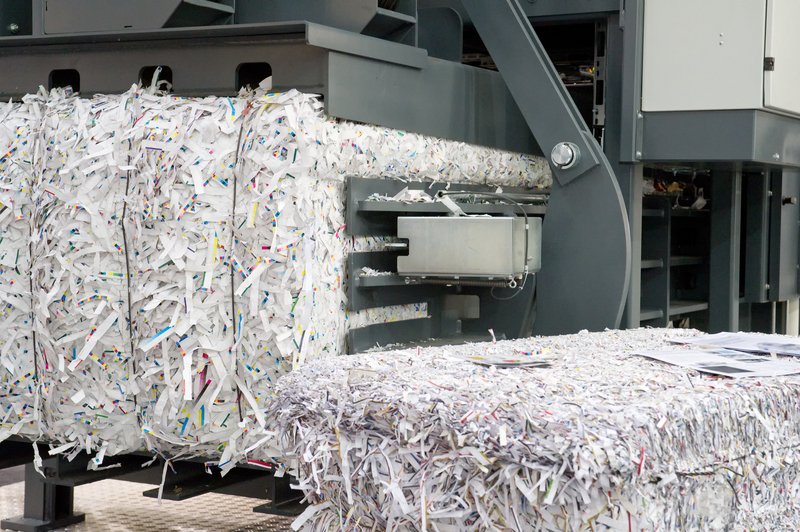The Ecological Benefits of Metal Recycling Explained
In a rapidly industrializing world, the demand for metals is ever-increasing, leading to extensive mining and environmental stress. However, metal recycling emerges as a beacon of hope, reducing ecological damage while meeting the industrial demand. This article delves into the ecological advantages of metal recycling, providing an in-depth understanding of its impact on our planet.
Understanding Metal Recycling
Metal recycling involves collecting scrap metal, processing it, and converting it into new products. This practice not only diminishes the need for virgin materials but also offers numerous ecological benefits that are crucial for sustainable development. Metals like aluminum, steel, copper, and iron are all highly recyclable, making them essential elements in conservation efforts.

Key Ecological Benefits of Recycling Metals
1. Conservation of Natural Resources
Undoubtedly, one of the most critical benefits of recycling metals is the conservation of natural resources. Extracting metals from ores is resource-intensive, consuming vast amounts of energy and water. By recycling metals:
- Raw materials are conserved, reducing the need for ongoing mining operations.
- Energy consumption is significantly lower, as it requires less energy to recycle metals than to mine and process them afresh.
- The demand for water, used extensively in metal extraction processes, is drastically reduced, thus preserving this vital resource.
2. Reduction in Environmental Pollution
Mining operations often lead to severe environmental pollution, affecting land, air, and water quality. Recycling metals helps mitigate these adverse impacts:
- Decreased air pollution: Recycling metal cuts down on the emissions of toxic gases, such as sulfur dioxide, that result from mining and processing.
- Reduced water pollution: Effluents from mining activities often contaminate water sources. By recycling metals, we lessen the risk of such pollutants entering the ecosystem.
- Land degradation is minimized: Metal recycling helps in reducing the need for landfill sites and decreases the extent of deforestation and soil erosion due to mining.
3. Lowering Carbon Footprint
The process of metal recycling dramatically reduces the carbon footprint associated with metal production. This is achieved in several ways:
- Recycling uses a fraction of the energy required for primary production, leading to lower fossil fuel consumption and reduced greenhouse gas emissions.
- Less transportation of raw materials from mining sites to processing plants further diminishes emissions.
Figures from the Aluminum Association reveal that recycling aluminum saves more than 90% of the energy needed to produce new aluminum from raw ore, illustrating the profound environmental benefit.
4. Biodiversity Conservation
Mining activities often disrupt natural habitats, posing a threat to biodiversity. Recycling metals plays a crucial role in conserving biodiversity:
- Recycling minimizes the need for new mining sites, protecting existing forests and wildlife habitats.
- Reduces soil and water contamination, which can harm native species and disrupt ecosystems.
5. Contributing to a Circular Economy
A circular economy promotes the recycling and reuse of materials, maintaining the value of products, components, and materials within the economy for as long as possible. Metal recycling is a cornerstone of this sustainable economic model:
- It encourages businesses and consumers to participate in sustainable practices.
- Adds economic value by recovering and repurposing metal assets.
- Facilitates job creation within recycling industries, supporting economic growth without adverse environmental impacts.

Challenges and Opportunities in Metal Recycling
Challenges
- The quality of recycled metals can sometimes be a concern, requiring advanced sorting technologies to meet industry standards.
- Market volatility for recycled metals can affect the profitability and expansion of recycling operations.
- Public awareness and participation in recycling programs need to be enhanced to maximize impact.
Opportunities
- Innovations in recycling technologies can improve efficiency and yield of recycled materials.
- Increasing global awareness and policies favoring sustainable materials provide a conducive environment for expanding metal recycling efforts.
- Collaboration between industries and governments can synergize efforts towards a greener future.
Conclusion
Metal recycling represents a crucial step towards ecological conservation and sustainability. By conserving natural resources, reducing pollution, lowering carbon emissions, and aiding biodiversity, metal recycling provides substantial ecological benefits. While challenges remain, the opportunities for growth and positive environmental impact are significant. Embracing metal recycling is not merely a choice but a necessity for preserving our planet's health and resources for future generations.
As more individuals and industries commit to recycling efforts, the positive impacts will multiply, creating a cohesive and sustainable ecosystem that supports both nature and humanity.